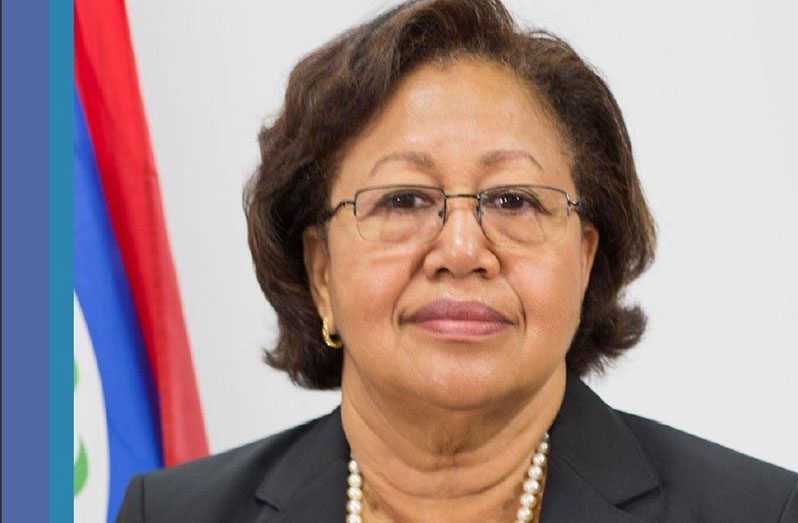— for CARICOM Heads of Government conference
THE border controversy between Guyana and Venezuela is on the agenda for discussion as the Caribbean Community (CARICOM) Heads of Government’s 33rd Inter-Sessional Meeting in San Pedro, Ambergris Caye, Belize, opens today.
This was disclosed by CARICOM’S Secretary-General, Dr. Carla Natalie Barnett, during a press briefing, on Monday, at which she noted that the matter was in no way prompted by the ongoing territory struggle between Russia and Ukraine.
“There are two border issues in the region that are on the agenda for every meeting. One is the Guyana-Venezuela, and the other, of course, is the Belize-Guatemala. Those are issues that the heads follow very closely. Those are the issues which make the region stand strong on the matter of self-determination and territorial integrity. And that will not change and has nothing to do with the position on Ukraine, in terms of influencing any discussion of those issues,” said Dr. Barnett.
She noted that, given the severity of border controversy and potential fallout, the community has a structure for raising and addressing issues of this nature.
CARICOM, in 2021, reiterated its “firm and unwavering” support for the maintenance and preservation of the sovereignty and territorial integrity of Guyana, as a response to moves made by Venezuela to lay claim to Guyana’s territory through an internal agreement between that nation’s government and its opposition.
At a meeting in Mexico City on September 6, 2021, the Heads of Delegation of the Venezuelan Government and the opposition Unity Platform of Venezuela agreed to ratify Venezuela’s purported rights over the Essequibo, Guyana’s territory and signed an agreement to that effect.
This agreement was, however, rejected by the Government of Guyana, which, through the Foreign Affairs and International Cooperation Ministry, stated: “That agreement is an overt threat to the sovereignty and territorial integrity of Guyana. Guyana cannot be used as an altar of sacrifice for the settlement of Venezuela’s internal political differences.
“While the Government of Guyana welcomes domestic accord within Venezuela, an agreement defying international law and process is not a basis for mediating harmony.”
Having taken note of the round of negotiations in Mexico, CARICOM also reaffirmed its support for the ongoing judicial process of the International Court of Justice that is intended to bring a peaceful and definitive end to the long-standing controversy between the two countries and urged Venezuela to participate in the process.
Guyana’s position, as stated before, is that the controversy with Venezuela is properly before the International Court of Justice (ICJ) and will remain there for a peaceful resolution.
In March 2018, Guyana filed its application in the International Court of Justice (ICJ) seeking an affirmation of the validity of the 1899 Arbitral Award and the international boundary that it established. The ICJ ruled, on December 18, 2020, that it has jurisdiction to hear the border controversy case.
Guyana is seeking to obtain a final and binding judgement that the 1899 Arbitral Award, which established the location of the land boundary between then British Guiana and Venezuela, remains valid and that the Essequibo region belongs to Guyana and not Venezuela.




.jpg)









